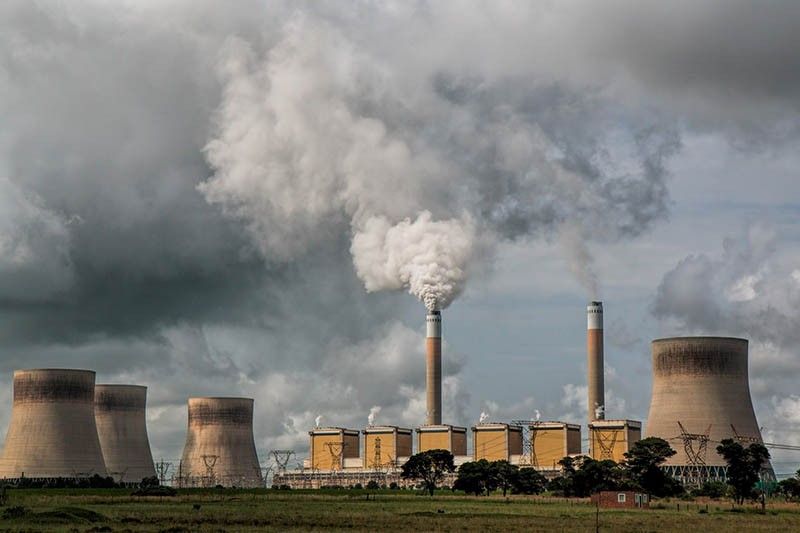Greenpeace: Companies’ coal expansion will block Philippines’ transition to low carbon future

MANILA, Philippines — The Philippines is heavily relying on coal—a major contributor to the catastrophic climate change—and will continue to be more in the future, hindering the country’s transition to sustainable low carbon future.
Environmental group Greenpeace stressed this in a report that looked into the existing and proposed coal and renewable energy facilities of top energy companies in the Philippines.
According to the report, coal remains the country’s dominant energy source with a 52.05% share in gross power generation by source in gigawatt hours despite the country’s commitment to move away from fossil fuels and shift to clean renewable energy.
The share of renewable energy sources, meanwhile, was at 22.27% as of December 2018.
Coal proposals also dominate the list of proposed committed projects with 80% share in the total installed capacity.
“We are already in a state or era of dirty energy because majority of our power plants come from coal and there are a lot of proposed coal power plants,” Khevin Yu, Greenpeace Philippine campaigner, said during the release of the report Friday.
If all proposed coal expansions are approved, the coal industry will comprise three-fourth of the country’s energy mix, Yu added.
Global temperatures have increased 1 degree celsius above pre-industrial levels. The Philippines committed to a conditional target of 70% emissions reduction below business-as-usual-levels.
Coal-driven companies
In its report, Greenpeace analyzed the energy portfolio and commitments on energy transition of San Miguel Corporation, Aboitiz & Co. Inc., Lopez Holdings Corporation, Manila Electric Company/Mgen and DMCI Holdings Inc. These companies account for more than half of the current existing and proposed power projects in the Philippines.
Citing data from the Department of Energy, the environmental group said in its report that the proposed power projects of the five companies—except Lopez Holdings—still look at coal as the preferred energy source.
It also said that Meralco/Mgen and SMR are “dramatically” increasing their coal portfolios. Meralco/Mgen has a proposal of 5,470 MW, while SMC has proposal of 4,933 MW—both companies accounting for 67.8% of all coal proposals.
Greenpeace said that bigger investments in renewable energy are necessary. However, the energy transition commitments of top energy companies are lacking.
The proposed renewable energy projects of SMC and Meralco/Mgen, for example, amount to only 1,343 MW.
“In terms of their priority, companies are focused on coal energy development. This shows that these companies will lead us to a path that our energy system will become coal dependent,” Yu said.
He added: “Coal is one of the main sources of emissions globally. This will heighten the risks of the climate impacts that we are already experiencing.”
Transition to low carbon future
Both the Philippine government and energy companies should make “drastic” change in their plans to facilitate the country’s transition to a low carbon future, Greenpeace said.
The environmental group called on the Energy department to create an energy plan that will prioritize renewable energy, remove financial incentives and other forms of support for coal and impose stricter regulations and fees for existing power plants.
Energy companies, meanwhile, are urged to stop all plans for coal expansion and plan a phase out of existing coal capacity and replace this with renewable energy.
Greenpeace also called on the Philippine government to order a moratorium on all new coal power plants through an executive order.
“We still have time to change the direction of energy development. But both the government and energy companies should make drastic change in their plans right now. Because with the current direction we are having, we will be more coal dependent and this will expose our country to more climate impacts in the coming years,” Yu said.
The 2015 Paris Agreement calls for blocking global warming at well below 2 degree celsius and 1.5 degree celsius if possible.
The United Nations-backed Intergovernmental Panel on Climate Change concluded in its 2018 report that global carbon dioxide emission must drop 45% by 2030 and reach “net zero” by 2050 to cap temperature rise at 1.5 degree celsius.
- Latest
- Trending































